Last week, we started a discussion about songs with thought-provoking endings. Today we bring it home to Seattle.
Stokes: So back to “The Gambler.” Like you suggest, the song doesn’t really go anywhere musically. It’s basically one melody and one set of changes, sweetened up with some backing vocals in the chorus sections and a truck-driver modulation halfway through the song just to keep things fresh. This isn’t a diss: it’s a great song, and the arrangement is pretty brilliant. The moment at the end where everything drops out, right around the gambler’s death, is just about perfect. But for all that it’s musically static.
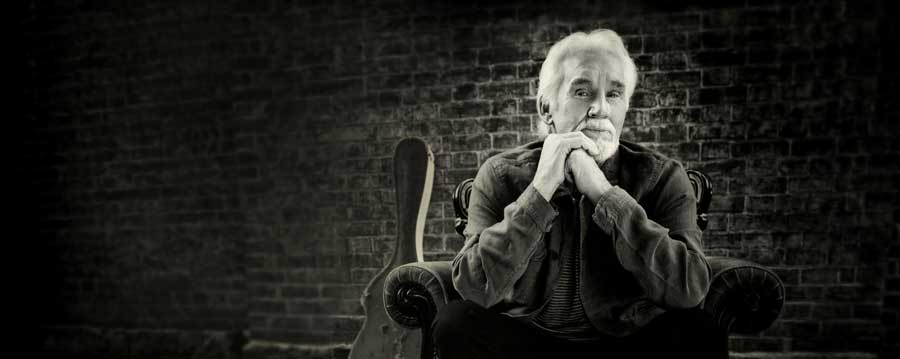
And this is particularly interesting because the lyrics are so non-static. Like, it’s the same music when the Gambler says “hey I have some advice” as it is when he says “Zzzzzz – – – ![]() .”
.”
Which sort of reinforces the sense that “The Gambler” is based on the idea of the medieval Wheel of Fortune—where the world is in constant flux, but because it’s constant flux, it actually never changes. Like, do we ever stop to think of how funny this is: “static” in the sense of white noise actually means “not moving,” but the way to make that sound is to blast your eardrums with eternally shifting chaos.
Anyway: “The Gambler” is a song about motion that, because of its music, does not move. “I Walk The Line” is a song about stasis that, because of its music, is not static. They both end with images of death. But where the fate of the gambler in the song is presented as his inevitable destiny, the singer has to choose to end the song by arbitrarily picking a chorus to stop on. And where we’d generally think that the addict in “I Walk The Line” is going to have to actively choose to fall off the wagon, the singer ends up painted into a corner such that the end of the song is inevitable.
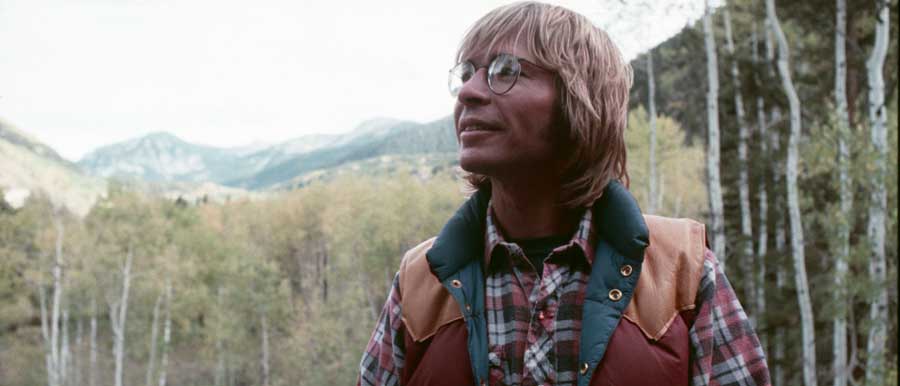
With “Country Roads,” I think the interesting question is whether John Denver actually has a destination in mind, when he talks about home, or whether the roads themselves are already the “home” that he’s talking about. This loops back to your earlier point about music not really wanting to end—road trips sort of don’t either, do they? Eventually they grow tiresome, but there’s a kind of flow state that you can get into, when the traffic’s light and the right song’s on the radio, that within that particular moment doesn’t seem like something you’d ever want to end.
We could also rope in a lot of the stuff that comes up in the later verses—there’s this fairly obvious symbolic complex where the landscape, the female body, and the idea of home all get mapped onto each other, which all starts to sound a little Freudian. You said each of those “country roads” runs is an actual road: I’ll go one further and say that each of those runs is a figurative womb.
Which makes the female backup vocals in the song—and the way that on the final chorus they get overdubbed, adding an extra layer of enveloping femininity—particularly interesting.
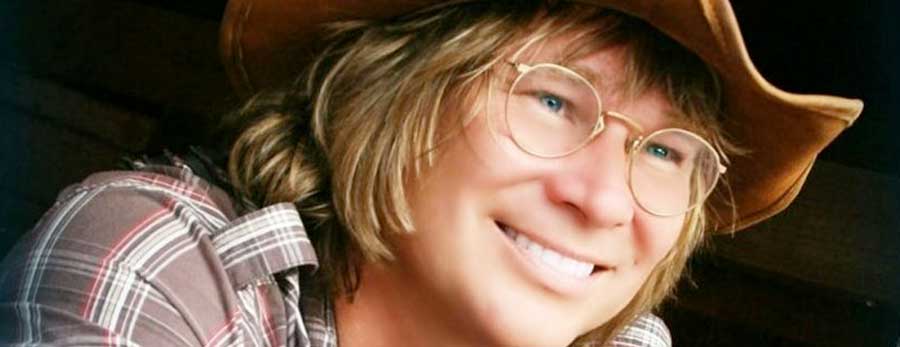
But I want to float the idea that “Country Roads” is a little less shapeless than it initially seems. It does have a B section—the “I hear her voice…” part—and that B section itself is very strongly linear. When you get to the “I should have been home yesterday… yesterdaaaaay” bit, you know exactly where you are in the song, and there’s a sort of “thisness” to that moment. Time isn’t circular there, the way that it arguably is in the chorus. Of course, that moment leads back into the chorus, which is what B sections more generally do. But what would it be like if we called that “yesterdaaay” moment (or more precisely the big cadence back to the chorus that comes right after that moment), the end of the song? Obviously this means ignoring the meaning of the word “end.” But would it tell us something about the song? I’ll just leave that hanging as a provocation.
But Pete, I want to switch genres on you, and share one of my favorite songs that ends. This one ends definitively.
I’m talking about “Would?,” the last track on the 1992 Alice in Chains album Dirt. Here, the musical form is kind of misleading. The song starts with a relatively quiet chorus that’s followed by a big, bombastic verse. Nothing super surprising there: it’s grunge, that’s sort of what they do. But then after the third run through the chorus, the song shifts gears pretty dramatically.
We need to talk about harmony again. The song is basically in Bb minor. But the verse kind of hangs out around fifth and sixth scale degrees—F and Gb—making F the local pitch center, with a kind of Phrygian feel. The chorus—in addition to getting louder, and jumping up to the singer’s high register—resolves this tension by landing solidly on the tonic. And this pattern repeats and repeats, through verse, chorus, and guitar solo, until—maybe a minute away from the end of the song—we get a totally new section.
The harmony drops down to Db major. (Really we’d usually think of Db as being “above” Bb, but as noted above keys don’t really have heights. In the context of the actual song, it feels like we drop down onto this harmony.) This is the relative major of the key that the song was already in—the day to Bb minor’s night. Everything gets even louder, even more awesome. But the music feels so stable and grounded! More so, perhaps, than anything else on the whole album (which is not typically known for stable feelings).
Now, you’d expect this to be the song’s bridge: the equivalent of the “I hear her voice… yesterday, yesterdaaay!” section from the John Denver song, which would eventually lead us right back to where we began. But Alice in Chains does something totally different. As soon as this new groove really establishes itself, the song changes gears again: the beat stops. The singer haltingly cries out, one isolated word at a time, “If I would, could you…?” And under each of those, the rest of the band plays some kind of repeated cluster chord that basically comes across as noise. (The bass note is a repeated Db, so we haven’t totally left the soundworld of the “bridge.” But the notes above it aren’t a major chord, so we’re also for sure not in that soundworld.)
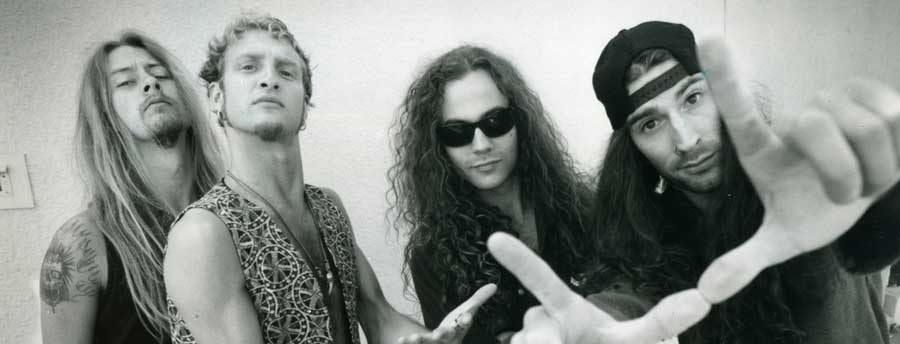
And that’s the end of the song. (And also, the end of the album.) Rather than setting up a loop that could spin around forever, Alice in Chains starts a loop, then takes a hard left turn out of the loop, and then takes another hard left turn directly into a wall. I’ve always loved this as a musical moment. I’m curious whether you have any insights into the lyrics. Is that awkwardly unfinished question a good ending? Does it relate meaningfully to the lyrics in the “normal” part of the song? Do we think that Layne Staley and/or Jerry Cantrell knew when to fold them?
Fenzel: This is one where the answer is hiding in plain sight. “Would?” is a person – the late Andrew Wood, whose death it seems in retrospect was the mythopoetically and symbolically defining moment of what grunge was and would become, especially here in the aftermath of the premature death of Chris Cornell.
Andrew Wood was the front man of Mother Love Bone, the Seattle band most likely to make the Seattle sound huge, and a guy connected in one way or another to most of the people who emerged from that scene as public figures, and he died of a heroin overdose.
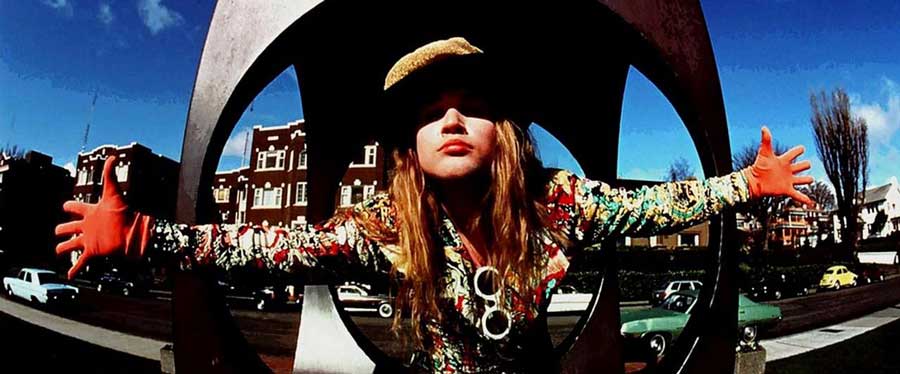
There are a lot of interesting historical implications of the death of Andrew Wood. The big one is that he’s the guy Eddie Vedder replaced; Pearl Jam was formed from the displaced members of Mother Love Bone—specifically by Stone Goddard and Jeff Ament.
Temple of the Dog, the grunge supergroup that briefly fused the existing Soundgarden and the about-to-be-birthed Pearl Jam, was a tribute to Andrew Wood.
And after that, if you like, you can sort grunge into two camps—those who processed the trauma of the loss of Andrew Wood or the losses of all the others he prefigured, and somehow survived sobriety and managing depression, and those who did not and ended up sharing his fate (of which there are now so, so many).
Alice in Chains had one lead singer from each camp, more or less: Layne Staley, who tried so hard to get clean but couldn’t and died 15 years ago, and Jerry Cantrell, who is very open about his own sobriety and depression, but is clean and still alive. Cantrell, by and large, wrote the songs, and he wrote “Would?”
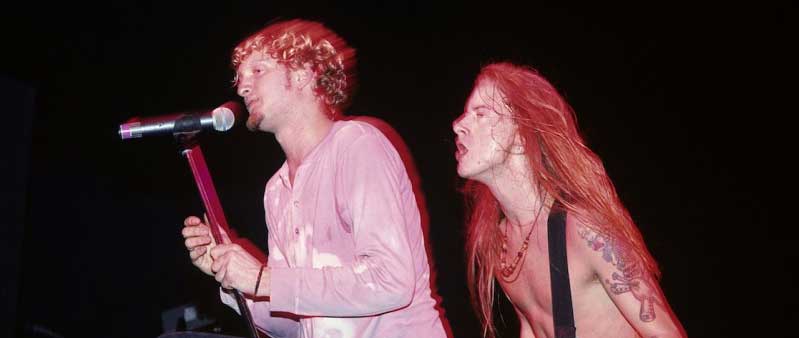
My take is that the question “If I would, could you?” Is asking “If I ‘Andrew Wood’“ – that is, if I die of this heroin overdose—and then it cuts off and doesn’t specify what the other person’s role is, as the heroin trip has erased the singer’s distinction between the self and the other, in much the same way as you might be at a loss to understand what a dead friend would want from you now that they have died.
Some candidates that I think live in that ambiguity:
- Could you also die of a heroin overdose and follow me?
- Could you go on and survive and not follow me?
- Could you forgive and understand me, without reducing me to your idea that what I am doing is wrong or evil?
- Could you forgive me for leaving you alone, or would you always hate me?
I think this is a great find, Jordan, because ending exactly where it does allows the questions posed by the song to persist as questions, and that’s important because it’s about a dead friend who will never answer the questions he left behind, and it’s also a challenge that never stops and never goes away.
But of course with grunge, heroin was often seen as symbolic by listeners (an interesting and unfortunately named example of the “death of the author” phenomenon) as opposed to literal. And “Would?” was on the Singles soundtrack, so you can see the gap at the end, left so abruptly by the music as well as the lyrics, as an unanswered question about risk, damage, baggage and loneliness. If I expressed the intention of being with you, could you do whatever impossible thing it would take to be with me and somehow traverse or heal my unbearable alienation?
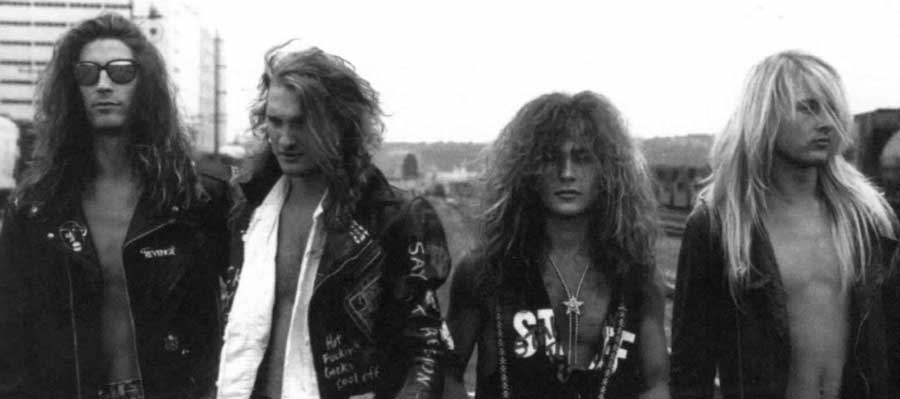
Stokes: It’s interesting, “If I could, would you?” is actually a much more intuitive question. If I could muster up the courage to ask, would you go to prom with me? If I could kick this heroin addiction, would you stay here with me in the awful circumstances that contributed to my heroin addiction?
Reversing that, making it “If I would ask you to prom,” puts more agency in the hands of the speaker — and makes it seem like whatever he’s asking the listener to do is not really within the realm of possibility.
So the final lyric, like the musical form of the song, does its work by subverting a more predictable syntactic structure.
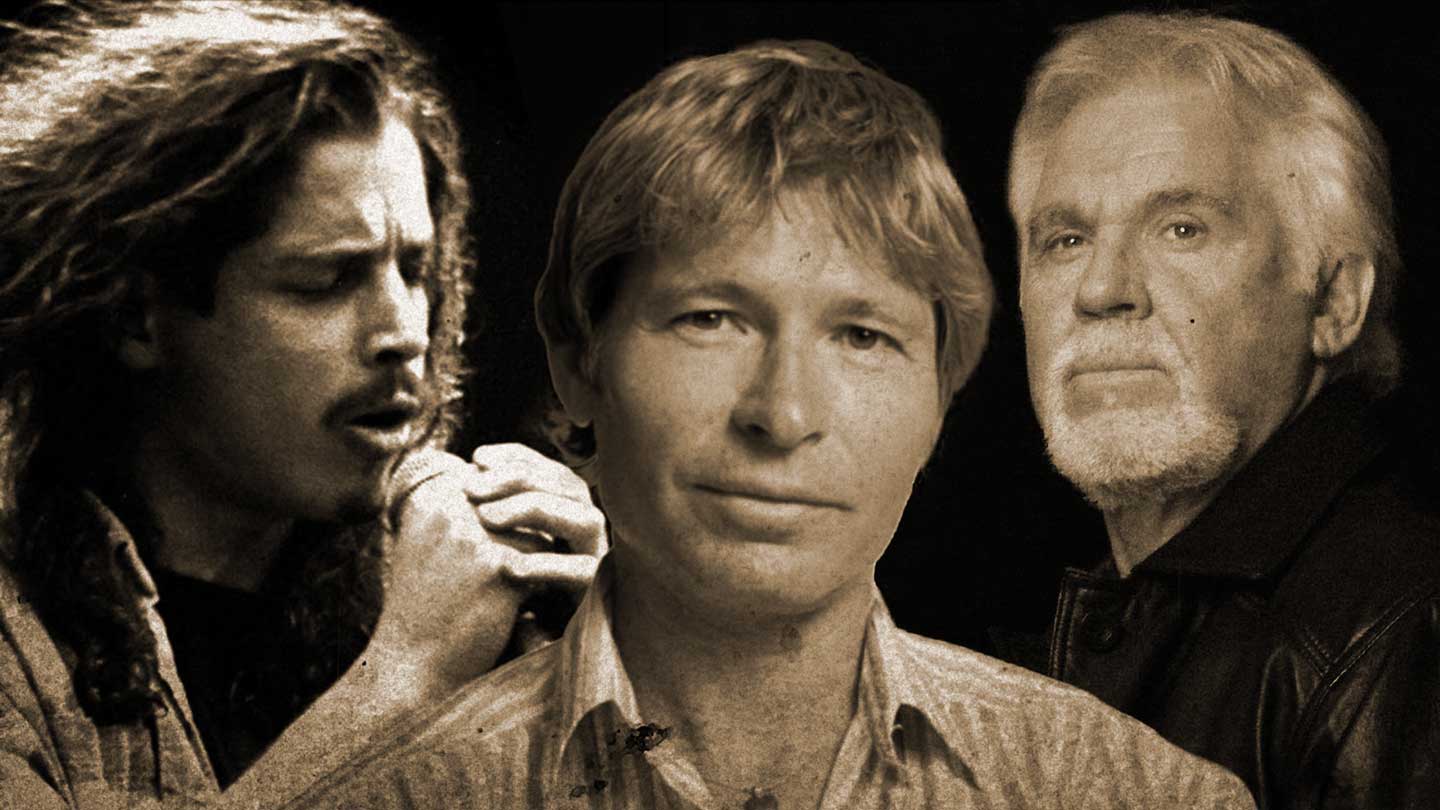
Add a Comment